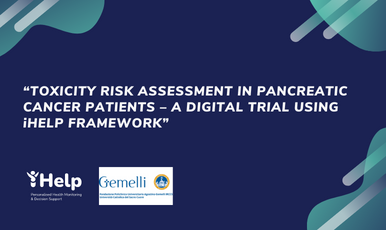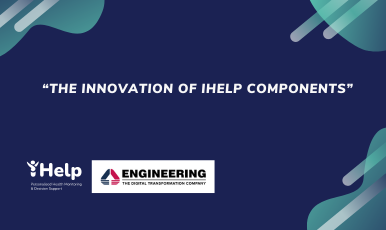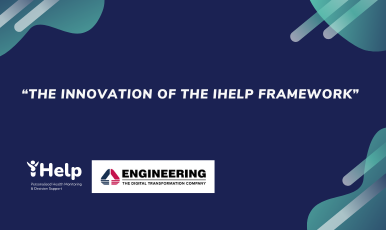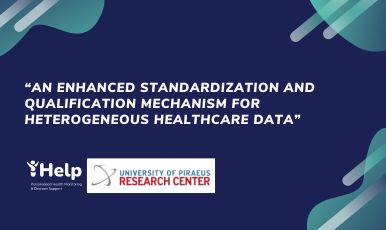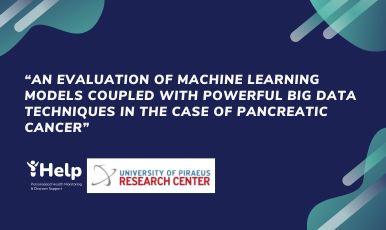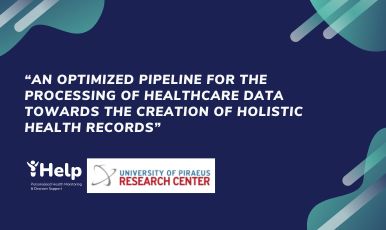The iHelp project purpose is to develop a personalised healthcare framework that allows an early detection and mitigation of the risks associated with pancreatic cancer, based on the application of advanced AI-based learning and decision support techniques on the historic (primary) data and behavioural (secondary) data.
The Fondazione Policlinico Universitario “A. Gemelli” (FPG), due to the large number of patients treated, can support the development and testing of the iHelp framework and, at the same time, can improve personalised therapeutic strategies and patients’ quality of life.
As a first step, the medical records of a cohort of patients with a diagnosis of pancreatic cancer treated at Fondazione Policlinico Universitario “A. Gemelli” (FPG) will be collected and made available during training of decision support models. The collected data will include for each patient: cancer staging, radiotherapy treatment, toxicities, and clinical outcomes.
As a second step, FPG will conduct a digital trial, inside the scope of the iHelp project, with the aim of developing and defining personalised therapeutic strategies that can maximize their efficacy and reduce the risks of offside effect in patients affected by Pancreatic Cancer. This can lead to a significant improvement in terms of Quality of Life (QoL) in high-risk patients. The targets will be achieved through the implementation of iHelp framework. Patients diagnosed with pancreatic cancer at FPG that have been advised for a radiotherapy treatment will be enrolled in the prospective study. Secondary data will be collected during treatment and follow-up period using a mobile application, Internet of Thing (IoT) devices and clinical evaluations. These secondary data will be integrated with data extracted from Hospital health records. A real-world data (RWD) analysis will give insight about how the lifestyle of oncological patients impacts important radiotherapy outcomes, such as undesired effects and toxicities. This knowledge will allow to predict high-risk patients in term of toxicity and survival outcomes improving their quality of life.
Moreover, recommendations will be generated by artificial intelligence algorithms based on primary data (clinical data extracted from hospital system) and secondary data (behavioral data captured by mobile application and devices) and will be delivered to the patients through the mobile application. This mechanism will enhance the relationship and communication between patient and physician during patient journey in cancer treatment and will raise patients’ awareness about their health conditions.

